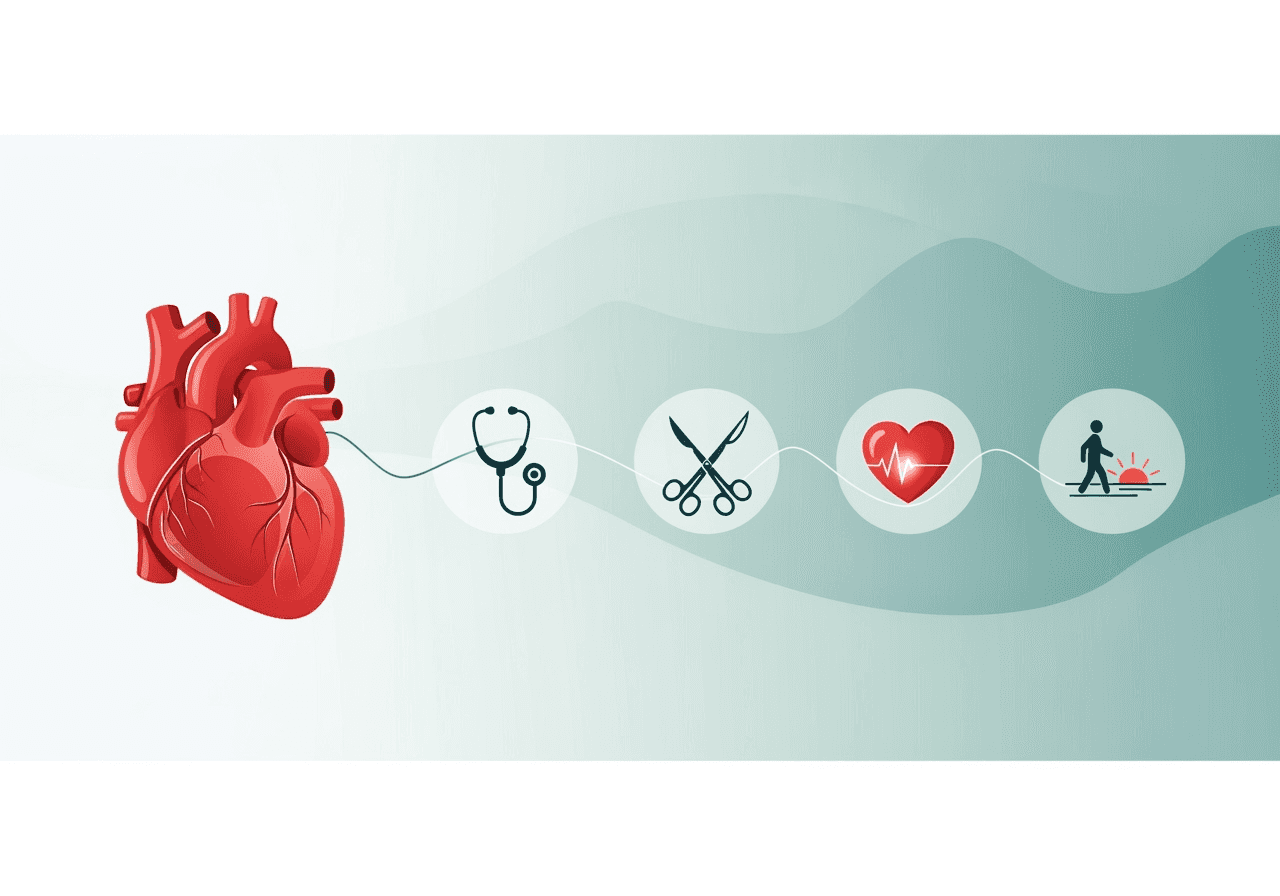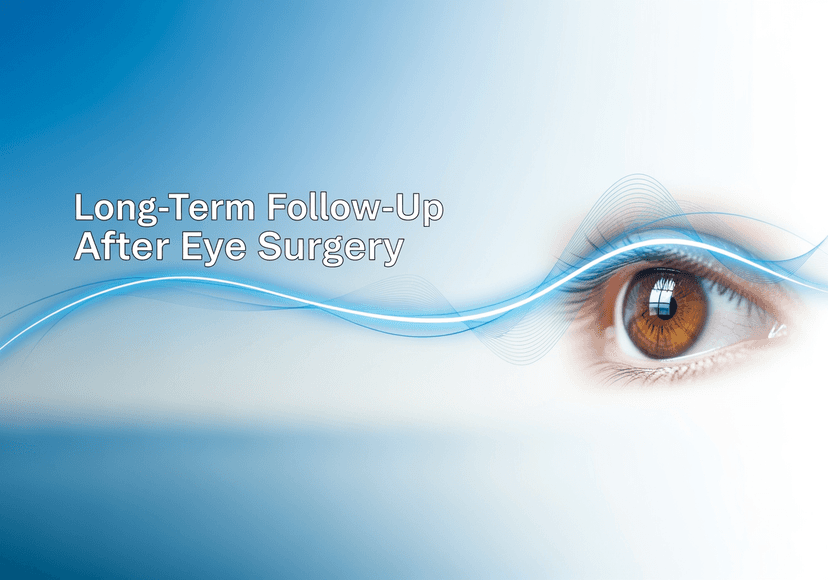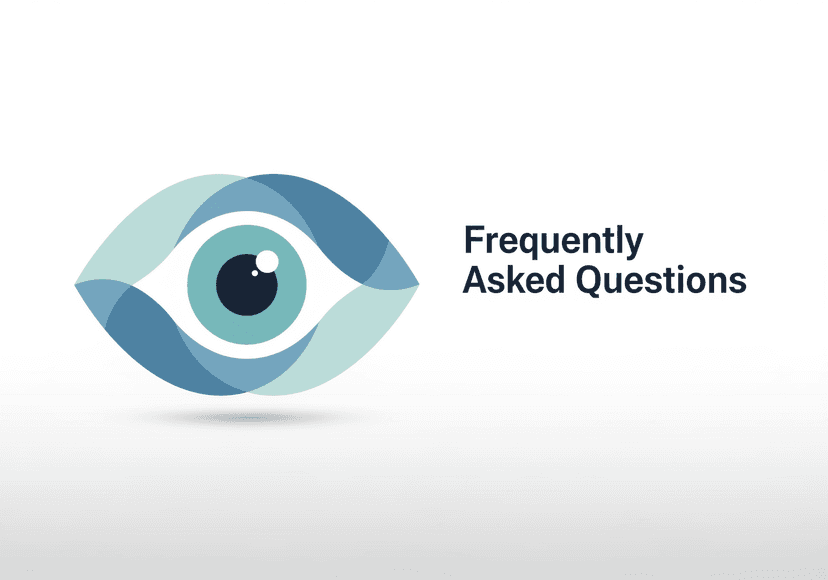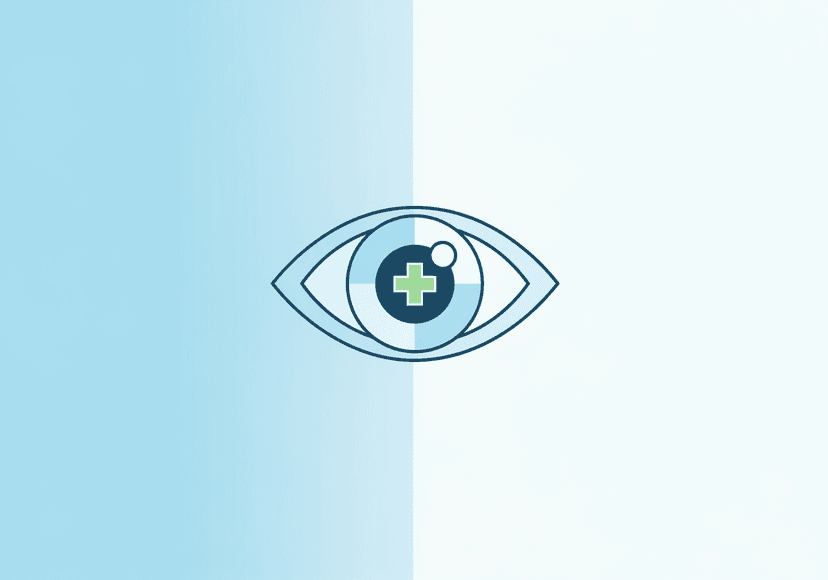
Healthtrip Experts Explain the Complete Cardiac Surgery Process
29 Oct, 2025
 Healthtrip
Healthtrip- What is Cardiac Surgery? Understanding the Basics
- Why Cardiac Surgery? Common Conditions and Indications (Examples: Coronary Artery Disease, Valve Disorders)
- Who Needs Cardiac Surgery? Determining Patient Eligibility and Risk Factors
- Where to Seek Cardiac Surgery: Top Hospitals and Centers of Excellence Globally
- Fortis Escorts Heart Institute
- Fortis Hospital, Noida
- Fortis Memorial Research Institute, Gurgaon
- Max Healthcare Saket
- Memorial Bahçelievler Hospital
- Memorial Sisli Hospital
- How Cardiac Surgery is Performed: Step-by-Step Guide to Procedures (CABG, Valve Replacement, etc.)
- Recovering from Cardiac Surgery: Aftercare, Rehabilitation, and Long-Term Outlook
- Conclusion: Empowering Patients with Knowledge About Cardiac Surgery
Understanding the Need for Cardiac Surgery
Cardiac surgery becomes necessary when heart conditions progress to a point where less invasive treatments are no longer effective. These conditions often include coronary artery disease, where arteries become blocked, restricting blood flow to the heart; valvular heart disease, involving malfunctioning heart valves; and heart failure, where the heart struggles to pump blood efficiently. Symptoms like chest pain, shortness of breath, and fatigue can significantly impact daily life, signalling the need for intervention. The decision to proceed with cardiac surgery is made after thorough evaluation, including physical examinations, imaging tests like echocardiograms and angiograms, and consultations with cardiologists and cardiac surgeons. The goal is always to improve the patient's quality of life, alleviate symptoms, and, in many cases, extend lifespan. With Healthtrip, you get access to hospitals like Memorial Sisli Hospital and Yanhee International Hospital which offer extensive cardiac screening and advanced diagnostic technologies to accurately assess your condition and determine the most appropriate treatment plan.
Most popular procedures in India
Types of Cardiac Surgery
Cardiac surgery encompasses a range of procedures tailored to address specific heart conditions. Coronary artery bypass grafting (CABG) is a common surgery that involves using a healthy blood vessel from another part of the body to bypass blocked coronary arteries, restoring blood flow to the heart muscle. Valve repair or replacement surgeries address malfunctioning heart valves, ensuring proper blood flow through the heart. Aortic aneurysm repair strengthens or replaces a weakened section of the aorta, preventing potentially life-threatening ruptures. Heart transplant, a more complex procedure, is considered for patients with severe heart failure when all other treatments have failed. Minimally invasive techniques, such as robotic-assisted surgery, are increasingly used to reduce incisions, minimize pain, and speed up recovery but are not suitable for all patients. At Healthtrip, we can connect you with hospitals who specialises in minimally invasive cardiac surgery, like those available at Fortis Hospital, Noida and Max Healthcare Saket enabling you to explore all available options based on your individual needs.
Preparing for Cardiac Surgery
Preparation is key to a successful cardiac surgery and recovery. Before the procedure, patients undergo a series of medical evaluations to assess overall health and identify potential risks. These may include blood tests, ECG, chest X-rays, and echocardiograms. Lifestyle modifications are crucial, such as quitting smoking, maintaining a healthy diet, and engaging in light exercise, as recommended by a physician. Patients receive detailed instructions on medication management, including which medications to continue or discontinue before surgery. It's essential to discuss any allergies or pre-existing conditions with the surgical team. Psychological preparation is equally important; anxiety is normal, and patients are encouraged to discuss their concerns with healthcare professionals or consider counseling. Healthtrip assists patients in every aspect of pre-operative planning, from coordinating medical appointments at facilities such as NMC Specialty Hospital, Al Nahda, Dubai and Saudi German Hospital Cairo, Egypt to providing guidance on pre-surgery lifestyle adjustments, ensuring a smooth and stress-free experience.
Wellness Treatments
Give yourself the time to relax
Lowest Prices Guaranteed!

Lowest Prices Guaranteed!
The Cardiac Surgery Procedure: What to Expect
On the day of surgery, you'll be admitted to the hospital and prepared for the procedure. Anesthesia will be administered, ensuring you are comfortable and pain-free throughout the surgery. The surgical team, including cardiac surgeons, anesthesiologists, and nurses, will work meticulously to perform the necessary repairs or bypasses. In many cases, a heart-lung machine is used to temporarily take over the functions of the heart and lungs, allowing the surgeon to operate on a still heart. The length of the surgery varies depending on the complexity of the procedure, but it typically lasts several hours. After the surgery, you'll be closely monitored in the intensive care unit (ICU), where healthcare professionals will track your vital signs and provide necessary medications and support. Knowing what to expect during surgery can greatly reduce anxiety, and Healthtrip ensures that you have access to comprehensive information, often working with facilities like Vejthani Hospital and Bangkok Hospital to facilitate pre-operative tours and consultations.
Post-Operative Care and Recovery
Recovery after cardiac surgery is a gradual process that requires patience and commitment. Initially, you'll spend a few days in the ICU, followed by a transfer to a regular hospital room. Pain management is a priority, and medications will be prescribed to alleviate discomfort. Physical therapy and cardiac rehabilitation programs are essential for regaining strength and improving cardiovascular fitness. These programs often include exercises tailored to your individual needs, as well as education on healthy lifestyle choices. It's crucial to follow all post-operative instructions, including medication schedules, wound care, and dietary guidelines. Regular follow-up appointments with your cardiologist and surgeon are necessary to monitor your progress and address any concerns. Healthtrip offers continued support throughout your recovery journey, connecting you with resources for cardiac rehabilitation programs and coordinating follow-up appointments at hospitals such as Hisar Intercontinental Hospital and Memorial Bahçelievler Hospital ensuring a seamless transition back to your daily life.
Potential Risks and Complications
Like any surgical procedure, cardiac surgery carries potential risks and complications. These can include bleeding, infection, blood clots, irregular heart rhythms, and adverse reactions to anesthesia. While rare, more serious complications can include stroke or heart attack. The risk of complications varies depending on individual health factors, the type of surgery performed, and the expertise of the surgical team. It's important to discuss these risks with your surgeon before proceeding with the procedure. Advances in surgical techniques and post-operative care have significantly reduced the incidence of complications. Additionally, choosing a reputable hospital and experienced surgical team, such as those available through Healthtrip at facilities like Jiménez Díaz Foundation University Hospital and Cleveland Clinic London can greatly minimize potential risks.
What is Cardiac Surgery? Understanding the Basics
Cardiac surgery, at its heart (pun intended!), is a branch of medicine dedicated to surgically treating diseases and conditions affecting the heart and its associated blood vessels. Think of it as the body's super-powered plumbing service, swooping in to fix leaks, unclog arteries, and generally keep the vital engine of life running smoothly. These aren't your average papercuts; we're talking about intricate procedures that require highly skilled surgeons, specialized equipment, and a dedicated medical team. It's a field constantly evolving, with advancements in technology and techniques improving patient outcomes and quality of life. From minimally invasive procedures using tiny incisions to complex open-heart surgeries, cardiac surgery offers a range of solutions for various heart-related ailments. And let's be honest, the thought of someone tinkering with your heart can be a little daunting, but with the right information and care, it can be a life-saving and life-changing experience. Healthtrip can help you navigate this complex landscape, connecting you with top-tier cardiac surgeons and facilities around the world, ensuring you receive the best possible personalized care tailored to your specific needs.
Cardiac surgery encompasses a wide array of procedures, each designed to address specific heart problems. These can range from relatively straightforward procedures like pacemaker implantation to more complex interventions like coronary artery bypass grafting (CABG) or heart valve replacement. CABG, for example, involves taking a healthy blood vessel from another part of the body, like the leg or arm, and using it to create a detour around a blocked artery in the heart. This allows blood to flow freely again, relieving chest pain and reducing the risk of a heart attack. Valve replacement, on the other hand, involves replacing a damaged or diseased heart valve with a mechanical or biological valve, ensuring proper blood flow through the heart. And then there are the cutting-edge procedures like Transcatheter Aortic Valve Implantation (TAVI), where a new valve is inserted through a catheter, avoiding the need for open-heart surgery altogether. The specific type of surgery required depends on the individual’s diagnosis, the severity of their condition, and their overall health. Navigating these options can feel overwhelming, but Healthtrip is here to provide clarity and support, guiding you towards the best course of action with access to expert opinions and world-class medical facilities.
Knowing the basics of cardiac surgery is empowering. It helps you understand your treatment options, ask informed questions, and actively participate in your healthcare journey. It's not just about understanding the medical jargon; it's about understanding what's happening in your body and feeling confident in the decisions being made. And that's where Healthtrip comes in. We aim to provide accessible and reliable information about cardiac surgery, helping you bridge the gap between complex medical terminology and everyday understanding. Whether you're researching different procedures, seeking second opinions, or planning your medical travel, Healthtrip is your trusted resource, ensuring you're well-informed and supported every step of the way. Understanding the basics is the first step towards taking control of your heart health and making informed decisions about your care. So, let's dive deeper and explore the common conditions that might necessitate cardiac surgery.
Why Cardiac Surgery? Common Conditions and Indications (Examples: Coronary Artery Disease, Valve Disorders)
Cardiac surgery becomes necessary when the heart, that tireless engine powering our lives, encounters problems that can't be effectively managed with medication or lifestyle changes alone. Think of it as calling in the specialists when the usual remedies just aren't cutting it anymore. There are several common conditions that might lead a doctor to recommend cardiac surgery. Coronary artery disease (CAD), a condition where the arteries supplying blood to the heart become narrowed or blocked due to plaque buildup, is a major culprit. This can lead to chest pain (angina), shortness of breath, and, in severe cases, heart attacks. Cardiac surgery, such as coronary artery bypass grafting (CABG), can restore blood flow to the heart muscle, alleviating symptoms and reducing the risk of future cardiac events. Healthtrip understands the anxiety and uncertainty that can accompany a diagnosis of CAD, and we're here to connect you with experienced cardiologists and surgeons who can provide the best possible care and support.
Another common reason for cardiac surgery is valve disorders. Heart valves act as one-way gates, ensuring blood flows in the right direction through the heart. When these valves become damaged, either by disease, infection, or congenital defects, they may not open or close properly, leading to various problems. Stenosis, where the valve becomes narrowed, restricts blood flow, while regurgitation, where the valve leaks, allows blood to flow backward. Both conditions can strain the heart and lead to heart failure. Valve repair or replacement surgery can restore proper valve function, improving blood flow and relieving symptoms. Finding the right valve repair or replacement is crucial, and Healthtrip is here to help you explore your options, connecting you with leading hospitals and surgeons specializing in valve disorders. Consider Memorial Bahçelievler Hospital and Memorial Sisli Hospital for advanced cardiac treatments.
Beyond CAD and valve disorders, other conditions that may necessitate cardiac surgery include congenital heart defects (birth defects affecting the heart's structure), aneurysms (bulges in the aorta, the main artery carrying blood from the heart), and heart failure. The decision to proceed with cardiac surgery is a complex one, taking into account the severity of the condition, the patient's overall health, and the potential benefits and risks of the procedure. It's essential to have a thorough evaluation by a qualified cardiologist and cardiac surgeon to determine the best course of action. Healthtrip can facilitate this process by connecting you with reputable medical professionals who can provide expert opinions and guide you through the decision-making process. We believe that informed patients are empowered patients, and we're committed to providing you with the information and support you need to make the best choices for your heart health. And remember, facilities like Fortis Hospital, Noida, offer comprehensive cardiac care services.
Who Needs Cardiac Surgery? Determining Patient Eligibility and Risk Factors
Determining who is the best candidate for cardiac surgery is a multifaceted process, much like assembling a complex puzzle. It's not simply a matter of having a heart condition; it’s about carefully weighing the potential benefits of surgery against the risks involved, taking into account the individual's overall health, age, and lifestyle. The "best" candidate is someone who stands to gain significant improvement in their quality of life and longevity from the procedure, with a reasonable expectation of a successful outcome. Factors such as the severity of the heart condition, the presence of other medical conditions (like diabetes or kidney disease), and the patient's ability to tolerate surgery all play a crucial role in the decision-making process. Healthtrip understands the anxiety and uncertainty that can accompany this evaluation, and we're here to provide you with the resources and support you need to navigate this complex landscape. We can connect you with experienced cardiologists and surgeons at facilities like Fortis Memorial Research Institute, Gurgaon, who can conduct thorough evaluations and provide personalized recommendations.
Several risk factors are carefully considered when determining patient eligibility for cardiac surgery. These may include age, as older patients may have a higher risk of complications; the presence of other medical conditions, which can increase the risk of surgery and affect recovery; smoking history, which can impair healing and increase the risk of respiratory problems; and obesity, which can increase the risk of wound infections and other complications. A thorough medical history, physical examination, and diagnostic tests are essential to assess these risk factors and determine the patient's overall suitability for surgery. The medical team will also consider the patient's psychological state, as anxiety and depression can affect recovery. Healthtrip believes in a holistic approach to healthcare, recognizing the importance of addressing both the physical and emotional aspects of cardiac surgery. We can connect you with support services and resources to help you manage your anxiety and prepare for surgery, ensuring a smoother and more positive experience. Moreover, the availability of advanced medical technologies and experienced medical professionals, similar to those found at Max Healthcare Saket, can enhance a patient's eligibility and improve outcomes.
The decision of whether or not to undergo cardiac surgery is ultimately a personal one, made in consultation with your medical team. It's important to have open and honest communication with your doctors, asking questions, expressing your concerns, and actively participating in the decision-making process. Healthtrip encourages you to seek second opinions and gather as much information as possible to make an informed choice that aligns with your values and goals. We can help you connect with leading cardiac specialists around the world, providing you with access to diverse perspectives and the latest treatment options. Remember, you are not alone in this journey. Healthtrip is here to support you every step of the way, providing guidance, resources, and connections to help you make the best decisions for your heart health. And consider that facilities like Saudi German Hospital Cairo, Egypt and Vejthani Hospital in Bangkok are also well respected and provide advanced care.
Where to Seek Cardiac Surgery: Top Hospitals and Centers of Excellence Globally
Choosing the right hospital for cardiac surgery is a critical decision that can significantly impact your treatment and recovery. The best hospitals boast experienced surgeons, advanced technology, comprehensive care, and a commitment to patient well-being. Healthtrip understands the importance of this decision, which is why we have compiled a list of some of the world's leading cardiac centers, where expertise meets compassion. These hospitals have consistently demonstrated exceptional outcomes in cardiac surgery, providing hope and healing to patients worldwide. When considering your options, remember to research each hospital's specific offerings, success rates, and patient testimonials to make an informed choice. Healthtrip is here to assist you in navigating these options, ensuring you find the best possible care for your heart.
Fortis Escorts Heart Institute
Located in New Delhi, India, Fortis Escorts Heart Institute stands as a beacon of cardiac care. Renowned for its pioneering work in cardiac surgery and cardiology, this hospital attracts patients from across the globe. Their team of highly skilled surgeons and cardiologists utilizes cutting-edge technology to perform a wide range of procedures, from complex bypass surgeries to minimally invasive valve replacements. Fortis Escorts is not just about technical expertise; they also prioritize patient comfort and well-being, creating a supportive environment for healing. Their commitment to research and innovation ensures that patients receive the most advanced and effective treatments available. With Healthtrip's assistance, accessing world-class cardiac care at Fortis Escorts is now easier than ever.
Fortis Hospital, Noida
Fortis Hospital, Noida, a part of the esteemed Fortis Healthcare group, is another excellent option for those seeking cardiac surgery in India. This hospital is equipped with state-of-the-art facilities and a dedicated team of cardiac specialists who are committed to providing personalized care. From diagnosis to treatment and rehabilitation, Fortis Hospital, Noida, offers comprehensive cardiac services tailored to meet the unique needs of each patient. What sets them apart is their focus on holistic care, addressing not only the physical aspects of heart disease but also the emotional and psychological well-being of their patients. Healthtrip can help you connect with Fortis Hospital, Noida, and explore your treatment options with their expert team.
Fortis Memorial Research Institute, Gurgaon
Fortis Memorial Research Institute (FMRI) in Gurgaon is a multi-super-specialty hospital known for its excellence in cardiac care. FMRI boasts a team of internationally trained cardiac surgeons and cardiologists who are experts in performing complex procedures. The hospital’s advanced infrastructure, including state-of-the-art operation theaters and intensive care units, ensures that patients receive the highest quality of care. FMRI is also actively involved in research, contributing to the advancement of cardiac surgery techniques and technologies. Their patient-centric approach and commitment to innovation make them a trusted choice for cardiac surgery. Healthtrip can provide you with detailed information about FMRI and help you schedule consultations with their leading cardiac specialists.
Max Healthcare Saket
Max Healthcare Saket in New Delhi is a leading healthcare provider with a strong focus on cardiac sciences. The hospital's cardiac department is equipped with advanced diagnostic and therapeutic technologies, allowing for accurate diagnoses and effective treatments. Max Healthcare Saket's team of experienced cardiac surgeons performs a wide range of procedures, including coronary artery bypass grafting (CABG), valve replacements, and heart transplants. The hospital is committed to providing personalized care, with a focus on patient education and support. Max Healthcare Saket's dedication to quality and patient satisfaction makes them a top choice for cardiac surgery. Healthtrip can assist you in accessing the expertise and resources available at Max Healthcare Saket, ensuring a seamless and supportive journey.
Memorial Bahçelievler Hospital
Located in Istanbul, Turkey, Memorial Bahçelievler Hospital is part of the renowned Memorial Healthcare Group, known for its international standards and patient-centered approach. Their cardiac surgery department is equipped with advanced technology and staffed by experienced surgeons specializing in various cardiac procedures. What truly distinguishes Memorial Bahçelievler is their commitment to providing comprehensive care, encompassing not only surgical expertise but also personalized attention and support throughout the patient's journey. Healthtrip can help you connect with Memorial Bahçelievler Hospital, where cutting-edge technology meets compassionate care.
Memorial Sisli Hospital
Memorial Sisli Hospital, also in Istanbul, is another flagship hospital within the Memorial Healthcare Group. It offers a comprehensive range of cardiac services, from diagnostic testing to advanced surgical interventions. Known for its multidisciplinary approach, the hospital brings together a team of cardiologists, surgeons, and rehabilitation specialists to provide holistic care. Memorial Sisli Hospital is committed to staying at the forefront of medical advancements, ensuring patients have access to the latest and most effective treatments. Their dedication to quality and patient satisfaction makes them a trusted destination for cardiac surgery. Healthtrip simplifies the process of accessing world-class cardiac care at Memorial Sisli Hospital, providing support and guidance every step of the way.
How Cardiac Surgery is Performed: Step-by-Step Guide to Procedures (CABG, Valve Replacement, etc.)
Cardiac surgery is a complex and highly specialized field, and understanding the steps involved in different procedures can help alleviate anxiety and empower patients to make informed decisions. Whether it’s a Coronary Artery Bypass Grafting (CABG) to restore blood flow to the heart or a valve replacement to correct a malfunctioning valve, each procedure follows a meticulous and well-defined process. Before the surgery, a thorough assessment is conducted, including physical exams, imaging tests, and blood work, to evaluate the patient's overall health and the extent of their heart condition. The surgical team explains the procedure in detail, addressing any concerns and answering questions. During the surgery, the patient is carefully monitored by anesthesiologists and other specialists to ensure their safety and comfort. Post-surgery, a dedicated team of nurses and therapists provides comprehensive care to facilitate healing and rehabilitation. Let's take a closer look at some common cardiac surgery procedures:
Coronary Artery Bypass Grafting (CABG)
Coronary Artery Bypass Grafting, commonly known as CABG, is a procedure designed to improve blood flow to the heart when the coronary arteries become blocked or narrowed by plaque. The surgery involves creating a new pathway for blood to reach the heart muscle, bypassing the blocked artery. First, the surgeon makes an incision in the chest and opens the rib cage to access the heart. A healthy blood vessel, often taken from the leg, arm, or chest, is then grafted onto the blocked coronary artery, creating a detour around the obstruction. In some cases, CABG can be performed "off-pump," meaning the heart is still beating during the procedure, while in other cases, a heart-lung machine is used to temporarily take over the heart's function. After the bypass grafts are in place, the chest is closed, and the patient is transferred to the intensive care unit for close monitoring. CABG can significantly improve the quality of life for patients with coronary artery disease, reducing chest pain and the risk of heart attack. Through Healthtrip, you gain access to detailed insights and the best medical support for CABG procedures.
Valve Replacement or Repair
Heart valves act as gates, ensuring blood flows in the correct direction. When these valves become damaged or diseased, they may not open or close properly, leading to various heart problems. Valve replacement or repair surgery aims to correct these issues, restoring normal blood flow. During valve replacement, the damaged valve is removed and replaced with a mechanical or biological valve. Mechanical valves are durable but require lifelong blood-thinning medication, while biological valves are made from animal tissue and may not last as long but typically do not require long-term anticoagulation. Valve repair, on the other hand, involves reshaping or reinforcing the existing valve to improve its function. This approach is often preferred when possible, as it preserves the patient's own tissue. The surgical approach can vary depending on the valve being treated and the patient's overall health. Minimally invasive techniques are increasingly being used, resulting in smaller incisions, less pain, and faster recovery. Healthtrip connects you with leading cardiac surgeons worldwide, experienced in both valve replacement and repair techniques.
Recovering from Cardiac Surgery: Aftercare, Rehabilitation, and Long-Term Outlook
Recovering from cardiac surgery is a journey that requires patience, commitment, and a comprehensive approach to aftercare and rehabilitation. The immediate post-operative period involves close monitoring in the intensive care unit, where the medical team focuses on managing pain, preventing complications, and ensuring the patient's vital signs are stable. As the patient progresses, they are gradually transitioned to a regular hospital room and begin the process of rehabilitation. Cardiac rehabilitation programs play a crucial role in helping patients regain their strength, endurance, and confidence. These programs typically include supervised exercise, education on heart-healthy living, and counseling to address emotional and psychological challenges. Long-term, maintaining a healthy lifestyle, including a balanced diet, regular physical activity, and stress management, is essential for preventing future heart problems. Regular check-ups with a cardiologist are also vital to monitor heart function and make any necessary adjustments to medication or treatment plans.
Aftercare and Immediate Post-operative Period
The immediate period after cardiac surgery is critical for monitoring and managing the patient's recovery. Patients are closely monitored in the ICU, where healthcare professionals track vital signs, manage pain, and watch for any potential complications, such as bleeding, infection, or irregular heart rhythms. Pain management is a priority, and medications are administered to keep patients comfortable. Breathing exercises and early mobilization are encouraged to prevent pneumonia and improve circulation. As the patient stabilizes, they are transitioned to a regular hospital room, where they continue to receive care and support. During this time, the medical team educates the patient and their family on wound care, medication management, and potential warning signs to watch out for. The goal is to ensure a smooth transition from the hospital to home, empowering patients to take an active role in their recovery. Healthtrip can connect you with post-operative care specialists to make your recovery as smooth as possible.
Cardiac Rehabilitation: Regaining Strength and Independence
Cardiac rehabilitation is a structured program designed to help patients recover from heart surgery and improve their overall cardiovascular health. These programs typically involve a multidisciplinary team of healthcare professionals, including doctors, nurses, physical therapists, and dietitians. Cardiac rehabilitation programs offer supervised exercise sessions, education on heart-healthy lifestyle choices, and counseling to address emotional and psychological issues. Exercise helps improve cardiovascular fitness, strength, and endurance. Education empowers patients to make informed decisions about their health, including adopting a heart-healthy diet, quitting smoking, and managing stress. Counseling provides support and guidance to cope with the emotional challenges of recovering from heart surgery. Cardiac rehabilitation has been shown to reduce the risk of future heart problems and improve the quality of life for patients who have undergone cardiac surgery. Healthtrip can help you find the best cardiac rehabilitation programs tailored to your individual needs.
Long-Term Outlook and Lifestyle Adjustments
The long-term outlook for patients who have undergone cardiac surgery is generally positive, especially when they commit to making healthy lifestyle adjustments. Adopting a heart-healthy diet, rich in fruits, vegetables, and whole grains, and low in saturated and trans fats, cholesterol, and sodium, is crucial. Regular physical activity, such as walking, swimming, or cycling, helps improve cardiovascular fitness and maintain a healthy weight. Quitting smoking is essential, as smoking significantly increases the risk of heart disease. Managing stress through relaxation techniques, such as yoga or meditation, can also benefit heart health. Regular check-ups with a cardiologist are necessary to monitor heart function and make any necessary adjustments to medication or treatment plans. By embracing these lifestyle changes and working closely with their healthcare team, patients can live long and fulfilling lives after cardiac surgery. Healthtrip supports you in finding the resources and support you need to maintain a heart-healthy lifestyle for years to come.
Also Read:
Conclusion: Empowering Patients with Knowledge About Cardiac Surgery
Cardiac surgery, though a significant medical intervention, can offer a new lease on life for individuals battling serious heart conditions. Armed with comprehensive knowledge, patients can navigate their treatment journey with greater confidence and make informed decisions. This knowledge encompasses understanding the nature of cardiac surgery, recognizing the conditions that warrant it, identifying suitable healthcare facilities, comprehending the surgical procedures involved, and preparing for the recovery process. By empowering themselves with this information, patients become active participants in their healthcare, collaborating effectively with their medical team to achieve the best possible outcomes. Healthtrip is dedicated to providing patients with the resources, support, and access to expertise they need to make informed decisions and embark on a successful path to heart health. Together, we can transform anxiety into assurance and uncertainty into informed action.
Related Blogs

Long-Term Follow-Up After Eye Surgery
Detailed insights into eye surgery – doctors, hospitals, technology, recovery,

Healthtrip’s Transparency in Eye Surgery Pricing and Packages
Detailed insights into eye surgery – doctors, hospitals, technology, recovery,

Frequently Asked Questions About Eye Surgery
Detailed insights into eye surgery – doctors, hospitals, technology, recovery,

Advanced Robotic Technology Used in Eye Surgery
Detailed insights into eye surgery – doctors, hospitals, technology, recovery,

How Healthtrip Supports Foreign Patients for Eye Surgery in India
Detailed insights into eye surgery – doctors, hospitals, technology, recovery,

Top Medical Packages for Eye Surgery Offered by Healthtrip
Detailed insights into eye surgery – doctors, hospitals, technology, recovery,










